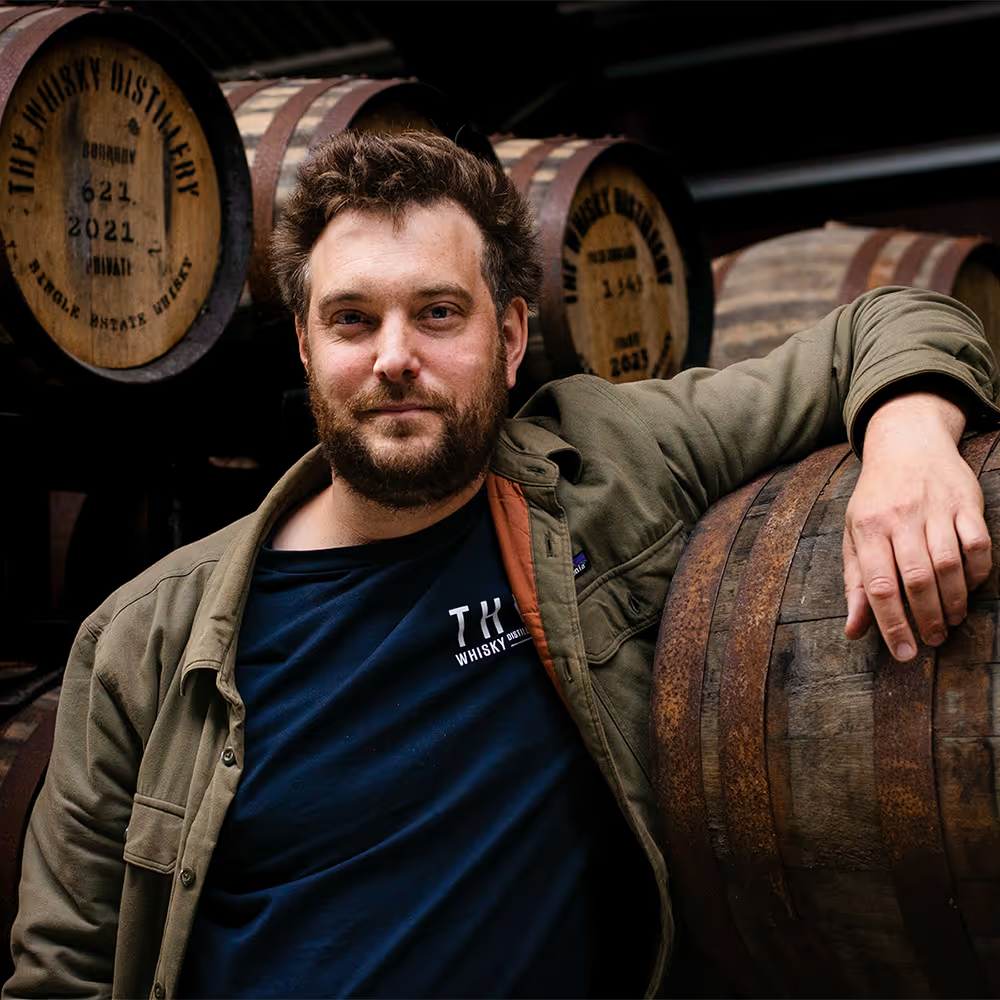
A Grain Of Truth - Thy Distillery
Andreas Poulsen, co-owner and maltster at Thy Distillery, goes into granular detail about the organic crops grown on the family farm... and how it makes their whisky such an expression of western Denmark.
First question: how should we pronounce Thy?
It’s somewhere between the French “tu” and “tsoo” - it is the name of our district in northwestern Jutland, in the west of Denmark. It’s a really scenic area with a lot of agricultural fields and then a huge nature reserve, Thy National Park, between the distillery and the North Sea – lots of heather and sandy dunes, with the wind blowing from the sea. It’s good for growing grain – plenty of rain, but a good amount of sun.
The distillery is on the family farm, is that right?
I'm part of 8th generation running the family farm, basically. We've been here for 300 years. My father-in-law was the one who got the crazy idea, made the first experiments and filled the first casks. Our generation took it further, but it came from a question he asked himself: “What if we could take the grain that I have been growing on my farm for the last 30 years and, instead of just sending it to the big pile, what if we could make a bottle of whisky out of it?” That's our way into anything - our estate, our farm, our fields, our buildings, that's where everything originates for us. It's always farm first, or rather grain first, because we are just grain nerds!
And when you talk about your grain, you mean organic grain, right?
Yes, we’ve been an organic farm for 30 years. And many of our neighbours are too – it's a long way to the nearest non-organic fields; we could make organic honey here!
What is the benefit to the whisky of organic grain?
That's always a debate: can you taste the difference? I believe you can, but I don’t argue the point... how could I prove it? For me, the important part of being organic is that I protect my groundwater here by not using any pesticides. We’re protecting the environment as a whole, but also making sure this specific farm is sustainable for generations long after the 8th. Also, it means that I am forced to innovate in different ways. I cannot just grow laureate barley [a high-yield variety] on my fields year after year after year. I have to do crop rotation. That forces me to think differently in my malt house, in the still to use different varieties, different grains.

What was the predominant grain grown on the estate, traditionally?
We have centuries of experience growing barley for malting... mostly for beer but, more recently for Scotch whisky. Like many countries in Northern Europe, Danish farming estates like this would have produced bread, beer and, often have a small still. But our national tradition is in clear spirits – snaps, akvavit, whatever you call it. When we first began in 2010, you could not buy a bottle of Danish whisky. [Stauning released the first Danish whisky in 2011.] Barley is still our major crop and laureate is the main variety, but far from our only one. Around 25% of our barley is made up of heritage varieties. Many of which fell away around the 1920s, when varieties from Germany and Czechia were found to have better yields. But these older varieties have huge variations in flavour.
Where did you find these heritage varieties of barley?
They are in the Nordic Seed Bank.
Wow, seriously? The underground vault in Svarlbard?!
Yes! I haven’t been there myself – that’s my dream as a grain nerd! - but you can ask to be sent a sample, and you receive a teaspoon of seeds in a small envelope. You sow that, then the next year, you have a handful of grains, sow that and so on, and after five or six years, you have enough seeds to sow a full field. There are a few of us partnering on this and so one of our friends is doing the grain cultivation and research for us.
Everything else is done on the farm though? Including malting?
Yes, we have a drum malting on-site and we malt grain for other distilleries and breweries. It’s not only barley that we malt... we malt rye, wheat, oats.
Your rye whisky isn’t what people would expect if they’re used to American ryes, is it?
It's smoother than American rye - still spicy but less sharp. I think it's partly because of our process, because we lauter out the spent grain. The trouble with lautering rye is that rye has no hull, so it can get clogged up. So we found a way round that – adding spelt wheat. That not only helps production but adds additional fruity flavours. They really complement each other.
As it’s so new on the scene, there seems to be a lot of experimentation across Nordic whisky. Are there any rules? Is there a shared ethos at all?
It’s true we're not bound by any traditions and I don’t know if we will end up with Scandinavian traditions as a whisky region, or even a Danish whisky identity. However, a group of distilleries have issued a Danish Whiskey Manifest earlier this year. Our common grounds are essentially raw materials and innovation. To use only Danish grain but not restrict our mash bills, fermentation or distillation. For example, we only distill once, but our pot still has a condenser at the top where we can control the temperature to get a big reflux on it, returning the heavy oils and waters back to the pot. We get a super-oily new-make from that, and it retains the cereal and malt flavours of the raw materials. And that’s what we want as grain nerds!

